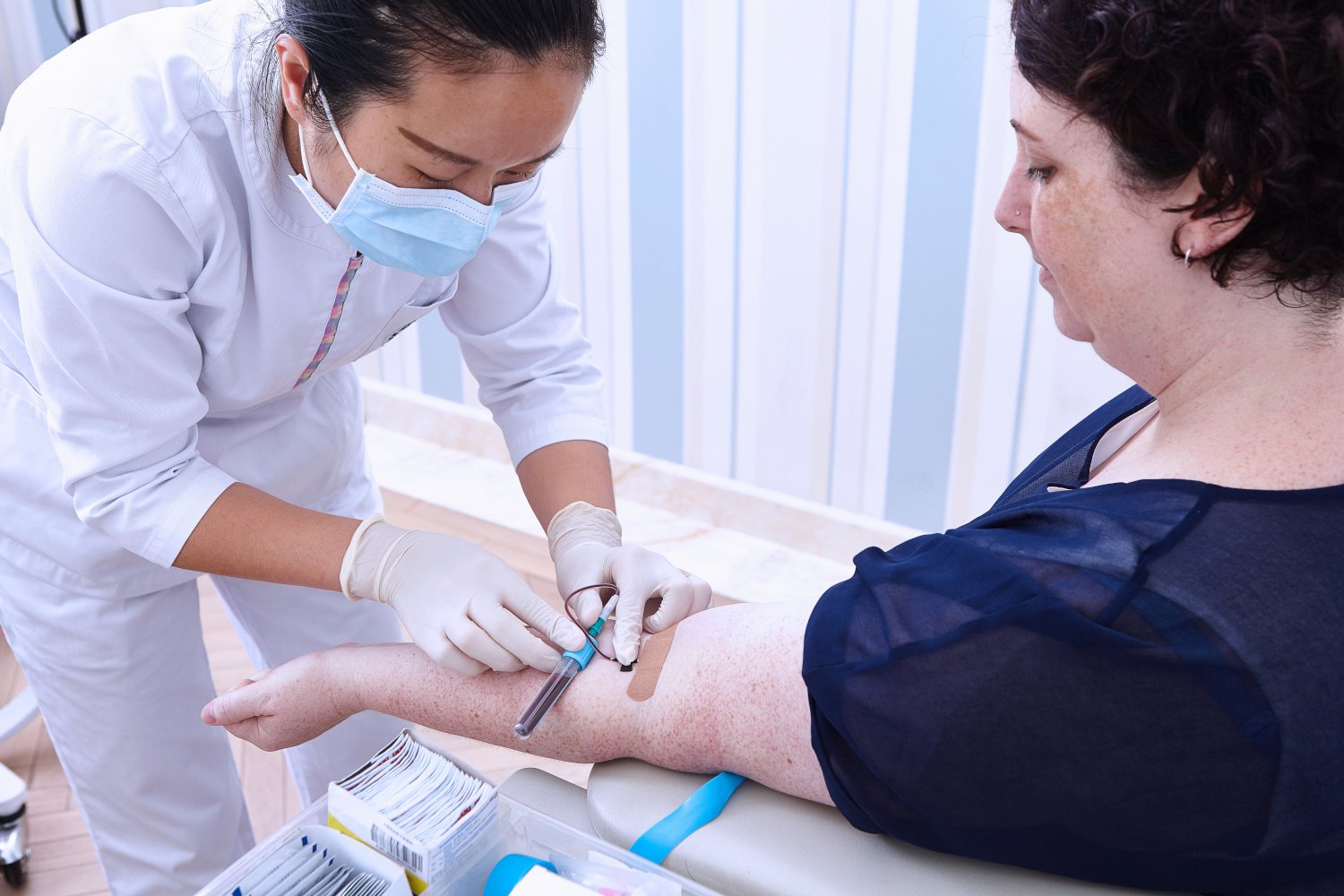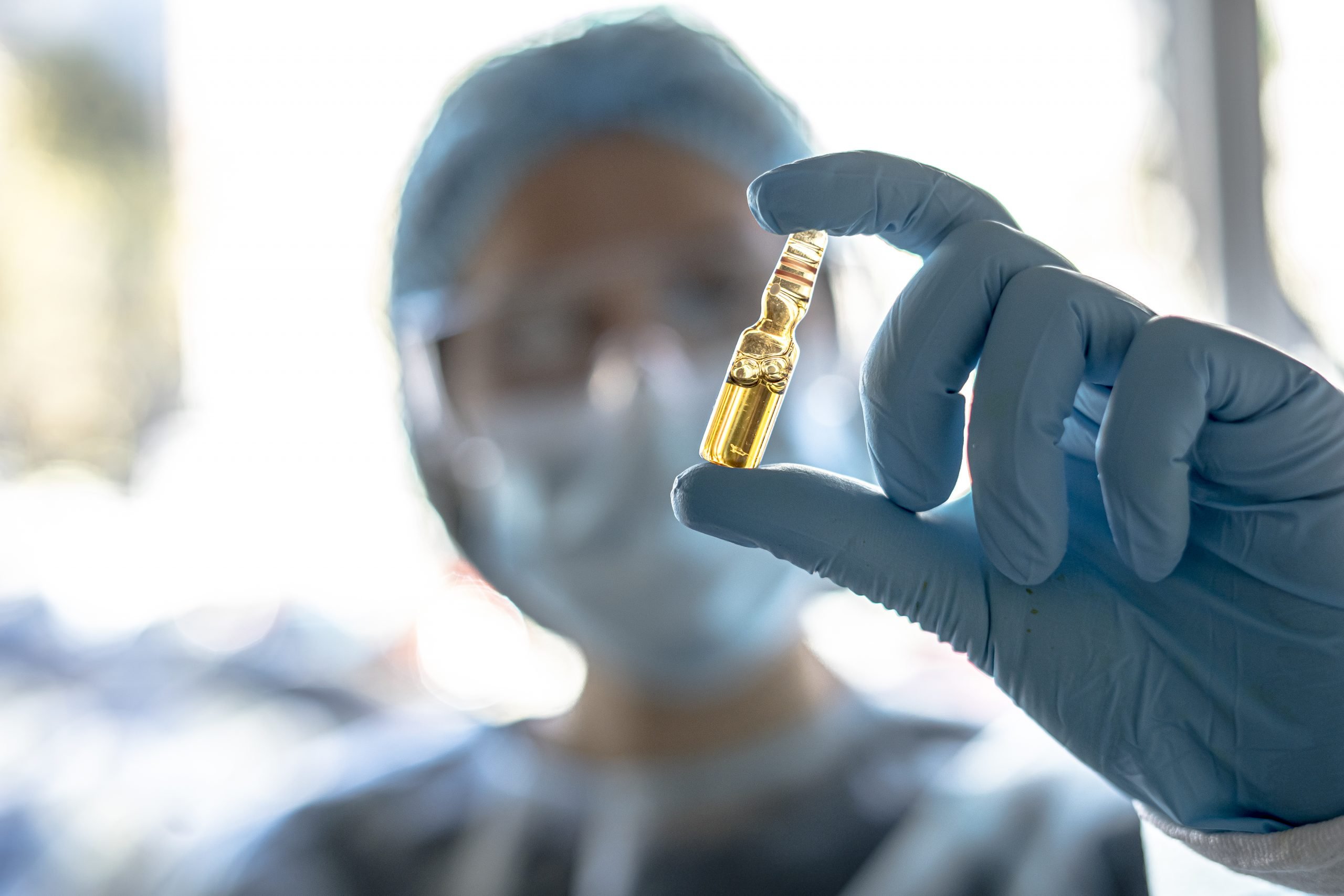Ketamine’s role in mental health is critical due to its unique ability to provide relief when other medications fail. For conditions like severe depression, anxiety, and even obsessive-compulsive disorder (OCD), ketamine provides a rapid response, often improving symptoms within hours to days of treatment. This fast-acting characteristic is particularly important for patients who have struggled with long-standing, debilitating symptoms.

Ketamine Mechanism of Action
Targeting the NMDA Receptor
The primary mechanism of action of ketamine in treating mental health disorders involves interaction with the NMDA (N-methyl-D-aspartate) receptor, a crucial component in the brain’s neural pathways. Ketamine and neurotransmitters interact uniquely; by blocking these receptors, ketamine produces a rapid antidepressant effect, unlike typical antidepressants. Other neurotransmitter activities, which are important for mood regulation and cognitive function, increase as a result of this blocking.
Role of Glutamate in the Brain
Glutamate is the most abundant neurotransmitter in the brain, responsible for sending signals between nerve cells. Ketamine NMDA receptor interaction indirectly increases glutamate levels in the brain, a vital part of its rapid-acting antidepressant effects. By modulating glutamate production, ketamine allows for enhanced neural communication, which is often impaired in those suffering from depression and anxiety.
Activation of AMPA Receptors
While ketamine blocks NMDA receptors, it simultaneously activates AMPA (α-amino-3-hydroxy-5-methyl-4-isoxazolepropionic acid) receptors. This activation is crucial as it helps to mediate the effects of the increased glutamate produced as a result of NMDA receptor blockade. Ketamine’s effect on the brain involves these enhanced signals that stimulate brain circuits that are underactive in depressive states.
Comparison with Traditional Antidepressants
Traditional antidepressants, such as SSRIs and SNRIs, typically take weeks to have a noticeable effect and work through different ketamine mechanisms, primarily involving serotonin and norepinephrine pathways. In contrast, the question of how does ketamine therapy work to provide relief through its immediate modulation of glutamate, the main excitatory neurotransmitter, which can result in rapid improvements in mood and cognitive function, setting it apart from other treatments.
Neuroplasticity and Ketamine
Growth of Neural Connections
One of the most exciting aspects of ketamine’s impact on the brain is its ability to promote neuroplasticity—the brain’s capability to form new neural connections. Ketamine stimulates the growth of dendrites and synapses, which are essential for neural communication. This growth can rejuvenate areas of the brain that are underactive in people suffering from depression, essentially repairing and creating new pathways for positive thoughts and emotions.
Strengthening Existing Neural Circuits
Beyond creating new pathways, ketamine helps strengthen existing neural circuits that might be weakened in individuals with chronic mental health issues. This fortification of neural pathways ensures more robust and resilient brain function, which contributes to improved cognitive processes and emotional regulation. The long-lasting advantages shown in patients receiving ketamine treatment are mostly due to this strengthening.
Effects on Obsessive-Compulsive Disorder (OCD)
How ketamine works for OCD involves similar principles of neuroplasticity. For OCD, enhanced neural connectivity and strengthened circuits can help disrupt the repetitive thoughts and compulsive behaviors characteristic of the disorder. Patients treated with ketamine often experience a decrease in the intensity and frequency of OCD symptoms, showcasing the broad therapeutic potential of ketamine across various mental health disorders.
The Ketamine Therapy Process
Initial Evaluation and Suitability
Before initiating ketamine therapy, a meticulous initial evaluation is essential to ascertain whether a patient is a good candidate for this treatment. This ketamine treatment process is outlined in the following steps:
- Gathering a Detailed Medical History: This initial step involves a comprehensive collection of the patient’s medical background. Clinicians meticulously document any chronic illnesses, previous surgeries, and ongoing medications to understand the broader health landscape of the individual. This thorough exploration helps identify any underlying conditions that might influence the effectiveness or safety of ketamine therapy, ensuring that the treatment aligns with the patient’s overall health needs.
- Assessing Current Mental Health Status: The second step involves a rigorous evaluation of the patient’s current mental health. This includes a detailed discussion about symptoms, the duration of current mental health issues, and how these affect daily functioning. The goal is to establish a clear picture of the mental health challenges faced by the patient and to determine if ketamine could potentially offer relief. With the unique intricacies of the patient’s psychological condition, this evaluation is essential to determining whether ketamine therapy is acceptable.
- Discussing Previous Treatments: In this phase, clinicians review the patient’s past treatment experiences, focusing on the types and effectiveness of previous mental health interventions. This discussion helps to understand what has or has not been beneficial in managing the patient’s condition, potentially highlighting ketamine as a novel alternative. By evaluating past treatment failures or successes, clinicians can better tailor ketamine therapy to serve as a complementary or alternative solution.
- Evaluating Potential Risk Factors and Contraindications: The final step in the evaluation process is to identify any potential risks or contraindications that might preclude the safe use of ketamine. This includes reviewing factors such as a history of substance abuse, cardiovascular issues, or severe liver disease, which could interact negatively with ketamine. Ensuring that these risk factors are thoroughly assessed helps safeguard the patient by preventing adverse reactions and optimizing the therapeutic outcome of the ketamine treatment.
This comprehensive initial evaluation is pivotal in determining whether ketamine therapy is a suitable and safe option for a patient. By carefully analyzing each of these areas, clinicians can make informed decisions that prioritize the health and well-being of the individual, potentially offering a new avenue for relief where other treatments have failed.
Details of the Infusion Session
During the ketamine infusion session, a controlled dose of ketamine is administered intravenously under close medical supervision. The session typically lasts between 40 to 60 minutes. Throughout the infusion, healthcare providers monitor vital signs and patient responsiveness to ensure safety and effectiveness. The controlled environment and expert oversight are pivotal components of the treatment process.
Monitoring and Safety During Treatment
Clinicians closely observe the patient’s physical and psychological responses during and after each infusion. This monitoring helps to tailor subsequent doses and manage any adverse effects that might occur. The goal is to maintain the utmost safety while maximizing the therapeutic benefits of ketamine.

Biochemical Effects During Ketamine Infusion
Role of Brain-Derived Neurotrophic Factor (BDNF)
A significant increase in Brain-Derived Neurotrophic Factor (BDNF) is another critical effect of ketamine infusion. BDNF is a protein that plays a vital role in the growth, maintenance, and survival of neurons, and it directly contributes to the enhanced neuroplasticity seen with ketamine therapy. Higher levels of BDNF can help to repair neuronal damage and build resilience against future depressive episodes.
Multifaceted Effects on Mood and Anxiety
The biochemical changes induced by ketamine are multifaceted, impacting several pathways that significantly improve mood and reduce anxiety. The interplay between increased glutamate, serotonin, dopamine, and BDNF levels leads to comprehensive improvements across various symptoms and conditions. A broad spectrum of biochemical adjustments is what makes ketamine a particularly effective treatment option for complex and treatment-resistant mental health disorders.
How Ketamine Helps with Depression, Anxiety, and OCD
Alleviating Symptoms of Depression
Patients often experience relief from depressive symptoms within hours after their first infusion, a dramatic contrast to traditional antidepressants that may take weeks to become effective. This rapid alleviation is due to ketamine’s ability to rapidly enhance synaptic connections in the brain, immediately improving mood and cognitive functions.
Reducing Anxiety and Enhancing Mood
For anxiety, ketamine helps by reducing the overactivity in the brain that often contributes to anxious states. As emphasized before, as ketamine modulates neurotransmitter levels, it dampens excessive neural circuit activity and promotes a more balanced emotional state. The regulatory effect not only reduces anxiety but also helps in stabilizing mood, which is particularly beneficial for individuals with fluctuating emotional states.
Patient Experience During Ketamine Therapy
What to Expect During Infusion Sessions
The experience during a ketamine infusion can vary, but typically patients might feel a sense of disconnection from their usual mental and physical state, often described as a dissociative experience. This is neither uncomfortable nor distressing; rather, it’s a different state of awareness that helps to facilitate the therapeutic effects of the drug. Clinicians ensure a calm, safe environment where patients can relax and let the ketamine perform its neurological work without anxiety.
Post-Treatment Care and Follow-Up
After completing a ketamine therapy session, comprehensive post-treatment care and follow-up are crucial to maximize the benefits and maintain safety. Here is a breakdown of key post-treatment steps:
- Scheduled Follow-Up Appointments: After the initial treatment, regular follow-up appointments are critical. These appointments allow clinicians to assess the patient’s ongoing response to the therapy and make necessary adjustments to dosages or the treatment regimen. They also serve as an opportunity to monitor the patient’s overall mental health progress and determine the need for additional sessions. Consistent follow-ups help to fine-tune the therapy to the patient’s evolving needs and maximize the potential benefits of ketamine.
- Therapeutic Support: Integrating additional psychological support, such as psychotherapy or counseling, can significantly enhance the benefits of ketamine therapy. This support helps patients process any emotional or psychological changes that may occur as a result of the treatment. Therapeutic support aims to provide a space for patients to discuss their experiences, manage adjustments in their mental health, and develop strategies for coping with everyday stressors, thereby extending the efficacy of the ketamine treatment.
- Lifestyle Adjustments: Recommending changes to the patient’s lifestyle is another vital step in post-treatment care. Advice may include modifications to diet, encouragement of regular physical activity, and the promotion of good sleep habits. These changes aim to support the physical and mental health of the patient, potentially enhancing the therapeutic effects of ketamine and promoting a holistic approach to recovery.
- Safety and Side Effects Management: Continuous monitoring for any adverse effects post-treatment is essential. This ongoing assessment helps to identify any side effects early and adjust the treatment protocol accordingly. The aim is to ensure the patient’s safety and comfort while minimizing any potential risks associated with ketamine therapy.
The comprehensive care and follow-up after ketamine therapy sessions are fundamental to achieving the best possible outcomes. Each of these steps is designed to support the patient’s journey toward recovery, ensuring that the benefits of ketamine therapy are realized safely and effectively.
Ketamine Treatment Centers
Availability of Specialized Clinics
The accessibility of specialized ketamine treatment centers has increased significantly, providing critical services to patients suffering from severe mental health disorders. These clinics are equipped with the necessary technology and staffed by trained professionals who specialize in administering ketamine safely and effectively. The addition of these centers reflects growing recognition of ketamine’s potential benefits, allowing more patients to access this novel treatment option.
Ketamine Treatment in Los Angeles
In urban areas like Los Angeles, the availability of ketamine treatment centers is notably high, offering a range of services from in-clinic infusions to comprehensive aftercare. These centers adhere to stringent medical guidelines to ensure patient safety and efficacy of treatment. Centers like Bespoke Treatment often have a unique approach or specialization, catering to the diverse needs and preferences of the population in this sprawling metropolis.
Finding a Reputable Treatment Center
When looking for a ketamine treatment center, it’s important to consider several factors to ensure quality and reliability. Prospective patients should seek centers that employ certified medical professionals who specialize in ketamine therapy. It’s essential that these professionals not only have the requisite credentials from recognized medical boards but also possess extensive experience in administering ketamine specifically for therapeutic purposes. The complex nature of ketamine treatment requires a nuanced understanding of its pharmacological effects, as well as the ability to tailor treatments to individual patient needs. Hence, verifying the training and experience of the medical staff can greatly influence the safety and efficacy of the treatment.

The experiences of previous patients offer valuable insights into the effectiveness and safety of the treatment at a center. Positive patient testimonials are strong indicators of a treatment center’s ability to provide care that not only meets but exceeds patient expectations. These testimonials often provide a narrative on the professionalism of the staff, the comfort of the treatment environment, and the overall patient care values.
As research into ketamine continues and more becomes known about its benefits and limitations, its use will likely become more refined and potentially more widespread. For those struggling with severe or treatment-resistant mental health conditions, ketamine therapy offers a promising alternative to traditional treatments, one that might provide not only relief but also a potential path to long-term recovery and improved quality of life.


























